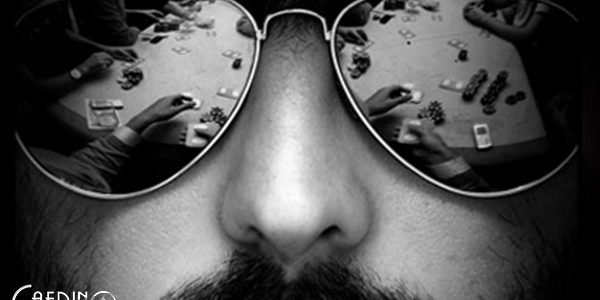Unless you end up with pocket Aces every time you play a hand, there are times when you have to win hands even when you have nothing. Whether you play online poker or at brick and mortal casinos, you will always find players that consider bluffing a bad a highly risky strategy. However, it’s one of the basic elements in Texas Hold ‘Em. If you couldn’t bluff, you’d be left with luck to help you, and then you might as well be playing Crazy Eights.
The task behind a bluff is a simple one. You only have to get the other people at the table to believe that your hand is the best and that they should fold theirs, because they’re only going to be throwing their money away. Now that you know that, you’re ready to rake in hundreds of dollars per hour, let alone a day of poker, right?
Well, it’s not quite that simple. If it were, everyone would be able to do it. Instead, bluffing is an art that you have to master. Some players win real cash on constant basis, even though they’ve never really figured out how to pull a bluff off. However, you can’t be in the top echelon of poker players unless you find a way to really know when it’s a good time to bluff and when it’s not (My personal suggestion is to look for a free online poker site where you can practice your bluffing skills and master this strategy).
Bluffing gives you the most power of any play in Texas Hold ‘Em. You take total control in the game and can come out a winner even when your cards are junk. Anyone can become a better bluffer, no matter what your talent level is. Take a look at these three simple tips and try to follow them as you get ready to begin your journey toward becoming a master bluffer.
- Never bluff the short stack.
The player at the table with the short stack is not the one you should be teasing with your bluffs. He’s going to be slightly more desperate and much more prone to calling or even re-raising you down the line. Instead, fold before this gets out of hand. There are some instances where this might not be the truth. For example, if people could buy pots from the short-stacked guy, and you’re in a bad spot or miss a draw, a bluff might work. In general, though, I strongly recommend you to stay away from this guy.
- Watch out for bluffing bad players
Some players are just too tone-deaf to understand what you might have, so they keep following their own inclinations. Some of these will keep calling you even though you carried off the bluff fairly well and their hands are only iffy at best. Skilled players can lose a ton of money trying to bluff mediocre guys who were holding a pair of threes. A bad player calls a bluff more often than a good player, so don’t bluff bad players unless you simply must.
- Don’t use calls and small raises to bluff.
Do you always get caught when you’re bluffing? You’re not betting or raising enough to make people worry about your hand. People who have a ton of chips in the pot are not going to fold in the face of a small raise. Make your commitments large enough to make the other players think twice, even after they have put a good amount of money in.







